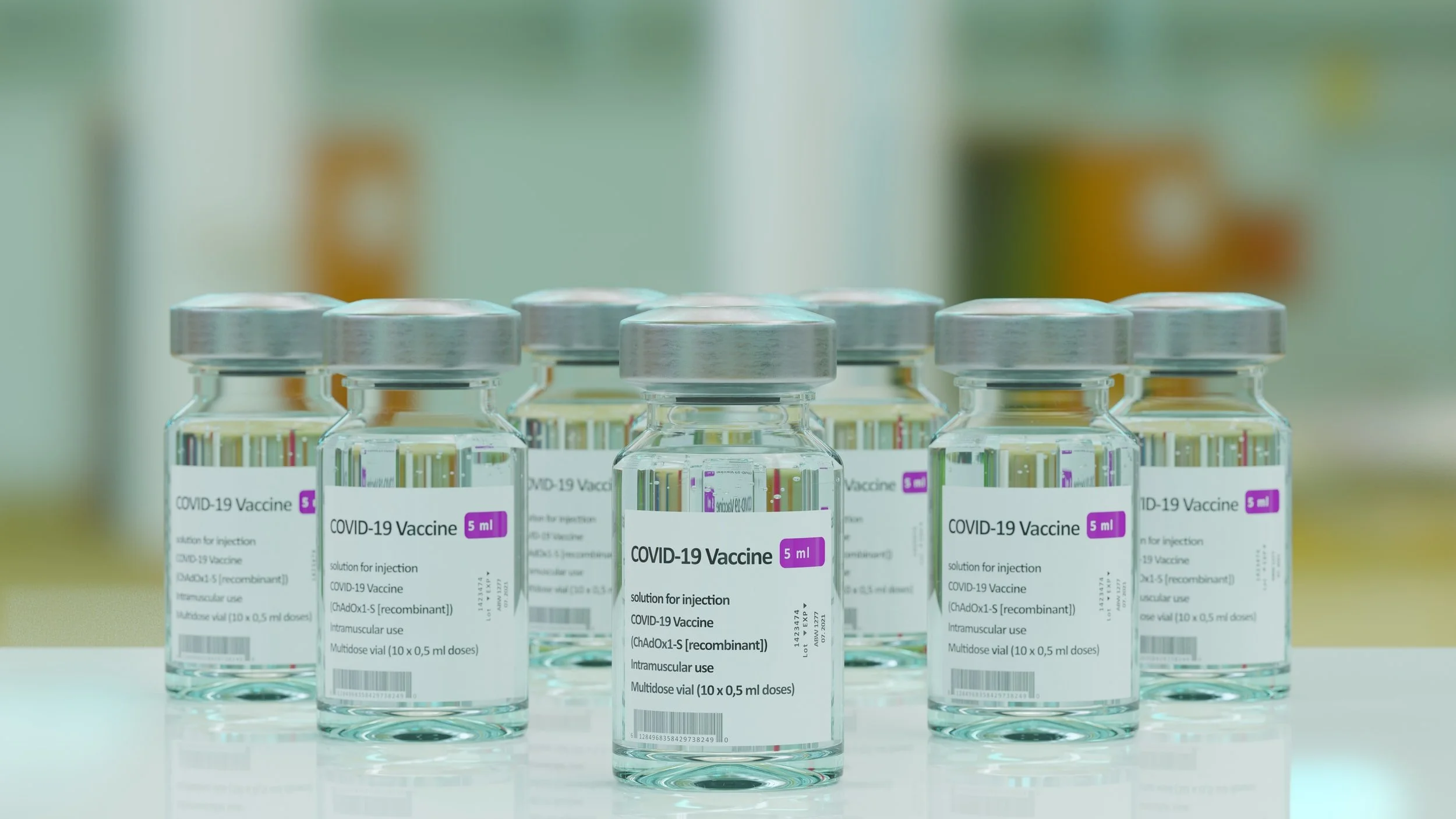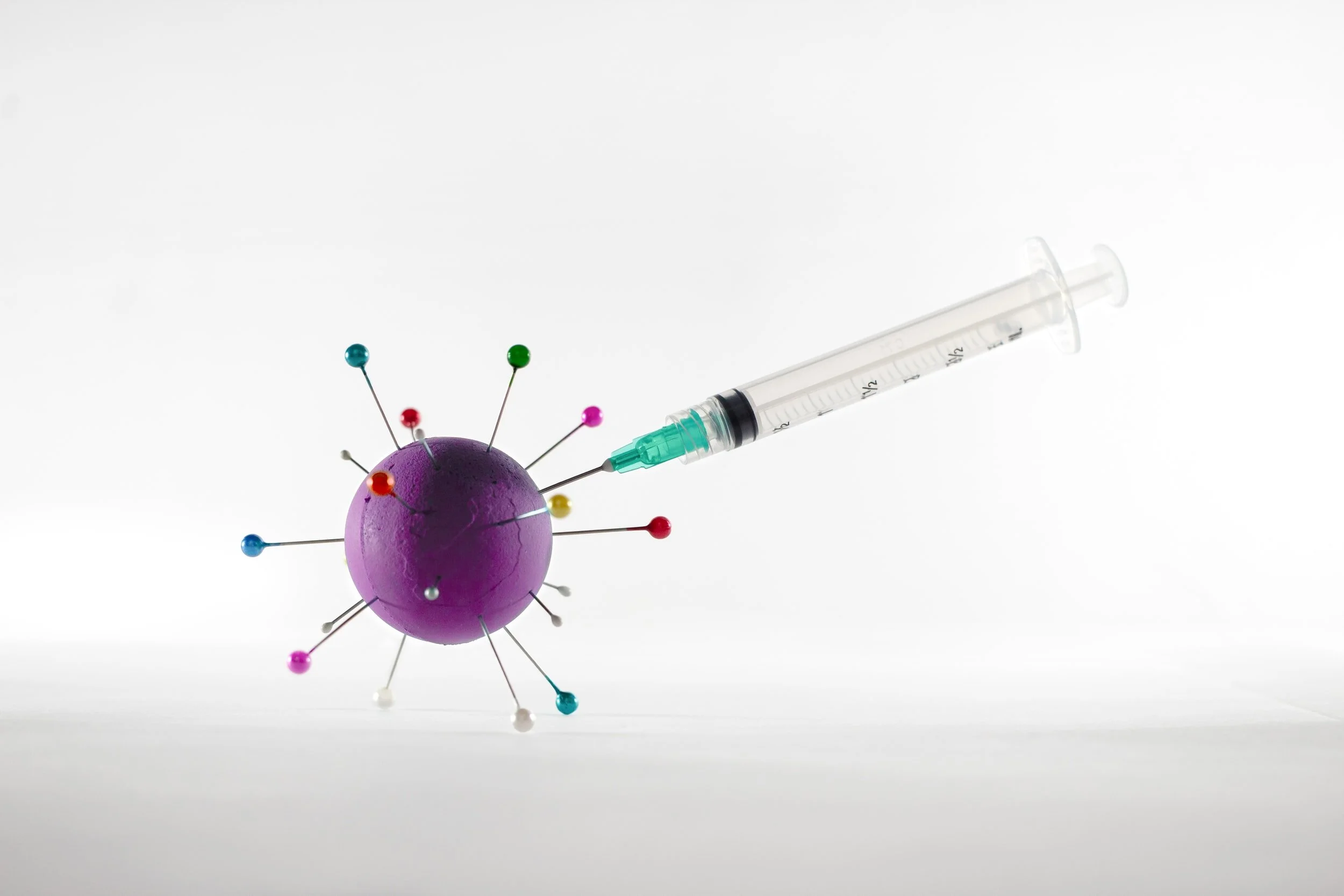Why Getting Vaccinated at Church Might Be the Future
Why Getting Vaccinated at Church Might Be the Future
Peter Yeung, Next City, December 21, 2021
Special rules: Please include the tracking pixel into the source or HTML view of your CMS when republishing this story. The tracking pixel can be found at the bottom of the story.
With one of the most diverse populations in the country, the COVID-19 vaccination rollout in Harris County, Texas, was never going to be a one-size-fits-all approach.
In the county of 4.7 million, which is the most populous in Texas and home to the city of Houston, 43 percent of the population identifies as Hispanic or Latino and 20 percent identifies as black or African American – much higher than the national average, according to 2020 census data. But internal research by the county found that Hispanic and African-American communities had low rates of vaccination.
“We have one of the most diverse counties in the country,” says Kyle Maronie, community resilience officer at Harris County. “That’s a wonderful thing. But we noticed some of these communities just weren’t getting vaccinated. It meant we had to improve our efforts to serve them. Some just need a little bit more outreach.”
The result was the Partner Incentive Program, an initiative that recruits nonprofits and faith-based groups to host vaccine clinics and promote them to the communities, often high on the social vulnerability index, that they serve. In return, the county pays partner organizations $50 for every person that gets a first vaccine dose, up to $5,000, as well as giving a $100 voucher to each individual for their first shot.
“It’s been a great success,” says Maronie of the program, which launched in August with 10 community partners, including the Sri Govindaji Gaudiya Matha Temple, the Beulah Land Community Church and the Masjid Al-Mustafa Mosque. “There’s a proven difference when compared to the normal vaccination level. It’s incredible.”
According to Harris County, between September and December around 50 Partner Incentive Program events have been held, resulting in more than 1,200 people receiving their first vaccine doses and a further 2,200 receiving two doses, more than half of whom have been Hispanic or African-American. The events have been held everywhere from church halls to mosques to community centers.
The community-first approach is seen as key to that success, particularly when it comes to vaccine hesitancy. The partners are a part of those communities. They both figuratively and literally speak their language, and have often over many years earned their trust, according to Maronie. The county had begun those relationships with earlier efforts to do COVID-19 testing, before vaccines were available.
“Some folks have concerns about the vaccines, some young people think that they won’t get sick, and others just don’t trust the government,” he says. “We have to listen to them, because they have legitimate concerns. Community partners make it more comfortable because they see them at church and in the neighborhood.”
Sorina Sorreno, who is helping run partner events at St. Leo the Great, Catholic Church, which is in an Hispanic neighbourhood in the north of Houston, agrees.
“Some people were scared to get vaccinated,” she says. “They might watch a lot of TV, and they don’t know what the right thing is. There’s a lot of wrong information coming out, rumors and misunderstanding on social media. That’s why we want to motivate the community about how important the vaccine is.”
In an effort to boost participation, the church has been distributing flyers and Father Carmelo Hernandez, who leads the mass, has been regularly urging his 5000-strong congregation to get vaccinated. “He always does publicity for it, telling them about the events,” says Sorreno. “They’re more likely to listen to him.”
As many as 500 vaccinations have been given at a single event held at the church and Sorreno believes Harris County’s willingness to adapt has been important. “We told the county that appointments wouldn’t work,” she says. “They agreed and we only do walk-ins. It takes longer for our team to do registrations, but we get more jabs done as a result. Whole families come, and it’s so good to see them with all their kids.”
While not every event reached the 100-person payment limit, more than $70,000 has been paid out to communities to date. Maronie argues that the investment will pay for itself in avoided healthcare costs for those who would have otherwise become seriously ill with COVID. “Vaccines are one of the best tools we can use to save lives and to reduce the burden that it could have had on the healthcare system,” he says.
Sorreno also believes the financial support has reinforced those results. “During COVID, a lot of families have been struggling financially, losing their jobs and homes,” she says. “They are good stipends for the community. If Harris County didn’t do this scheme, I don’t think the community would be getting vaccinated.”
Others are now following Harris County’s example. In November, Travis County, Texas, launched its own replica of the community partner program. “The idea is reaching out to communities of trust,” Travis County Commissioner Jeff Travillion, told KXAN. “It is working with community institutions and with people who are community institutions to make sure that we are reaching the entire community.”
Harris County, which has been passing on advice to Travis County, believes that the scheme could work nationwide. “What’s so beautiful is that we are available to provide our expertise on this,” says Maronie. “We’ve modeled something that has demonstrated a significant amount of success. I think that working with community partners is something that could be used across the country.”
For now, Harris County’s scheme has only been scheduled to run until December 31, though there is a proposal to extend it. But whatever happens, the county plans to build on the foundations that it has created. “The idea is to work with communities not only with vaccines, but to have a long term relationship,” says Maronie.
Tracking pixel:
<img src="https://www.google-analytics.com/collect?v=1&t=pageview&tid=UA-2562581-1&cid=b98ae33e-099f-4c57-9e60-0f482a838b1b&dh=nextcity.org&dt=%5BSJN%5DWhy%20Getting%20Vaccinated%20at%20Church%20Might%20Be%20the%20Future&dp=sjn/https://nextcity.org/urbanist-news/why-getting-vaccinated-at-church-might-be-the-future"/>






